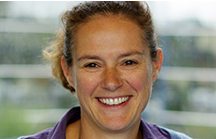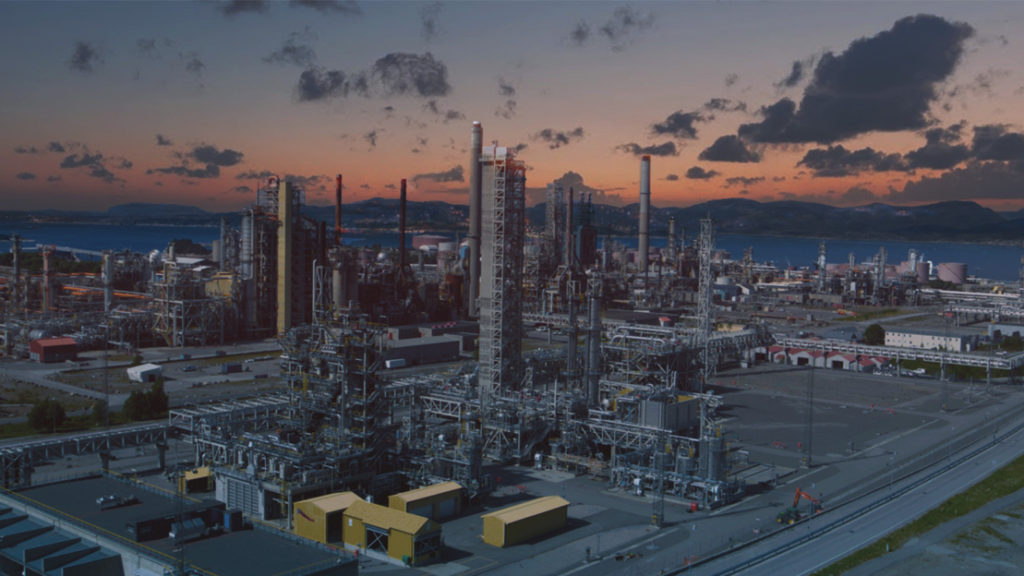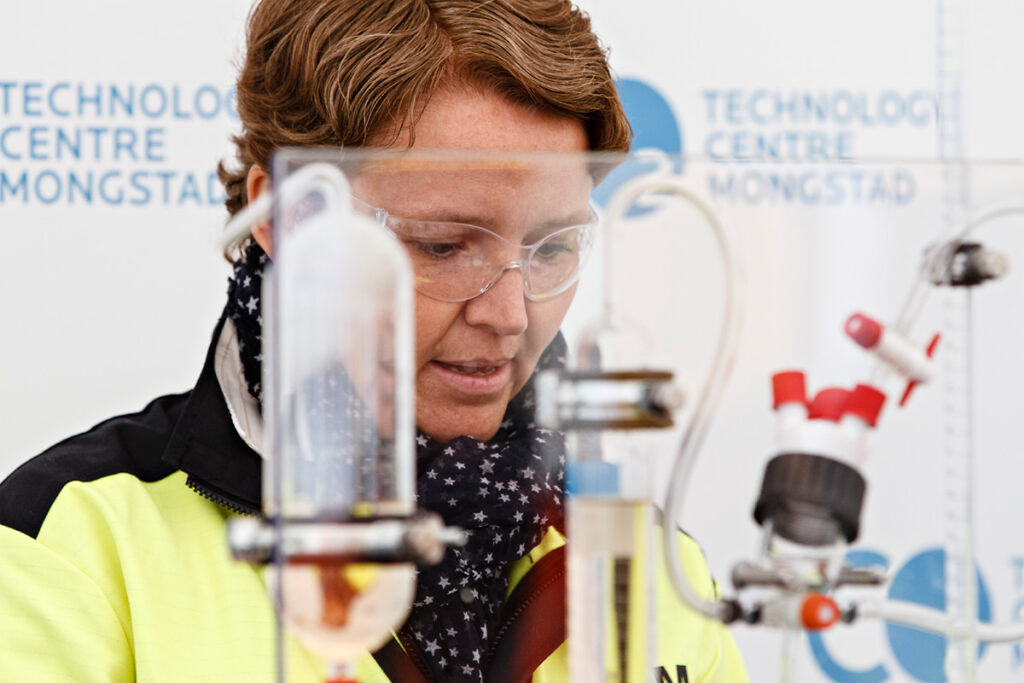18.05.2022
– The role of the Norwegian state in TCM is exemplary
– The role the Norwegian state has taken in the building and operation of TCM is remarkable and exemplary for other European countries, says Anne Brisset. She is the Manager of Stavanger Research Center of TotalEnergies and member of the company meeting (board) of Technology Centre Mongstad DA (TCM).
TotalEnergies has been a co-owner of TCM since 2017, together with Equinor and Shell. The Norwegian state is the main owner with a share of 73.9 percent.
Anne Brisset emphasizes that the Norwegian state invested a lot in the building of TCM and so in the development and derisking of carbon capture worldwide. Its strong participation in the structure costs of TCM made feasible the participation of owners. – The government, through Gassnova, is playing its role as a “strategic state” to build the world of tomorrow through its strong involvement in the construction of such a structure and participation in the operating costs. Such a role is remarkable and exemplary for other European countries, she says.
An amazing platform for gaining knowledge
According to TotalEnergies, TCM since its startup has acted as a catalyst for the deployment of Anthropogenic CO2 capture. Such structure combining process at large scale with R&D problematics was a prerequisite for implementing commercial units which will help the industry in reaching its decarbonation objectives.
– Because of the high scale of the amine plant, TCM is a demonstrator of the performances of solvents developed by proprietary vendors and a compulsory stage in their development process for validating further commercial deployment.
– TCM is an amazing R&D platform for gaining knowledge, understanding, for developing tools, competences and trust in the solvent-based post combustion CO2 capture processes. Being owner of TCM is regarded as being at the outpost of all the actual efforts to accelerate the reduction of GHG (Greenhouse gas) emissions, Anne Brisset puts forward.

Anne Brisset represents TotalEnergies in the Company Meeting (Board) of TCM.

Has enriched the understanding of and development of CCS
The collaboration between the owners of TCM has in several ways enriched TotalEnergies’s understanding of and development of CCS technology.
– TCM is both a learning and training center for our seconded personals but also for the technical people working on our on-going projects.
– TCM is also addressing many challenges necessary to overcome for a wide deployment of carbon capture in the industry. As a non-exhaustive list, here below is our consideration of the benefits and usefulness of TCM outputs:
- Learning and training through the expertise of TCM personal, the results of the campaigns, and the detachment of our personal. «TCM can be viewed as a trainer center before conducting a plant on our asset.»
- To benchmark technologies and challenge technology vendors
- To accelerate the deployments of technologies in our companies, on our partner assets
- To promote and help the deployment of technologies of some vendors we are supporting
- To gain operational experience on a high scale unit: start up, shut down, instrumentation, analytics, corrosion, solvent degradation and vendor specific technologies.
- To derisk our industrial deployment on carbon capture, in particular the environmental concerns related to emissions. Public acceptance will require to understand, mitigate and control emissions. TCM has developed over the year a very high level of expertise on this subject.
- To develop and validate simulation tools, real time plant control
Still a need for reducing the cost of carbon capture
The Partnership’s Agreement describes five objectives for TCM, among them to reduce cost and risk related to deployment of CCS, and to facilitate wide international deployment of CCS technologies. Anne Brisset says that TCM has made a big push to the development of the carbon capture market.
– After 10 years, the market is there, and technology deployment is accelerating. But there is still a need for reducing the cost of carbon capture. Through the multiple campaigns performed on TCM amine and chilled ammonia plant, most of the most mature advanced amine solvent were tested and derisked. The results of these campaigns have clearly facilitated carbon capture deployment all around the world.
– Our opinion is that TCM has contributed to development of technology vendors and subsequent competition, and also to wide knowledge sharing where relevant for CCS. TCM is a neutral testing site which help vendors in maturating their technology. It clearly encourages emulation and competitions between the main vendors. Since the beginning, the company has brought a lot to the international community of CCS by developing and maintaining a strong publication activity. Tens of papers have been published and presented in conferences, workshops. TCM has been engaged in numerous collaborations with academics, vendors, service companies, end users. Owner’s campaigns are the basis of this knowledge sharing. TCM appear today has having the expertise but also the ability to share it through publishing activities but also the recent development of the advisory services.
Great value for the participants
Anne Brisset points that several outputs of TCM are keys for participants to become informed buyers and end user of CO2 capture technology, which also is an objective for the company:
– TCM is in continuous contact with most of the vendors. Testing campaigns are a mine of information for gaining knowledge on the solvent performances, benefits and drawbacks.
Each owner has two persons involved in TCM’s technical committee. – The continuous exchanges between the comittee and TCM is a way to address all the technical and scientific challenges related to the vendors activities. I would also say that TCM is attentive to the owner problematic and expectations. Internal workshops are organized to synthesize results of campaigns and share knowledge on specific topics.
A new business model is needed for TCM
When asking if there will be need for the business TCM runs also in the future, the answer from TotalEnergies is a conditional yes.
– Following the deployment of several large-scale PCC plant, new problematics should appear. There will be a need for both technical assistances, for which TCM experienced people could play a role, qualifying equipment and developing new equipment.
The question is in accordance with TotalEnergies opened about the pertinency of the scale of TCM for tackling these issues.
– The cost for running the amine plant is quite high. A new business model is needed so as to continue to use it and to gain knowledge on the remaining gaps in solvent-based post combustion CO2 capture: solvent management, emissions, operational issues, dispatchable operations, heat integration, high level CO2 capture processes.
– For the 3rd site, it seems possible to continue as it is. Such site is mandatory to test and evaluate all the emerging technologies in areas on which the future of PCC (Procurement, Construction, Commissioning), is still uncertain, says Anne Brisset.




